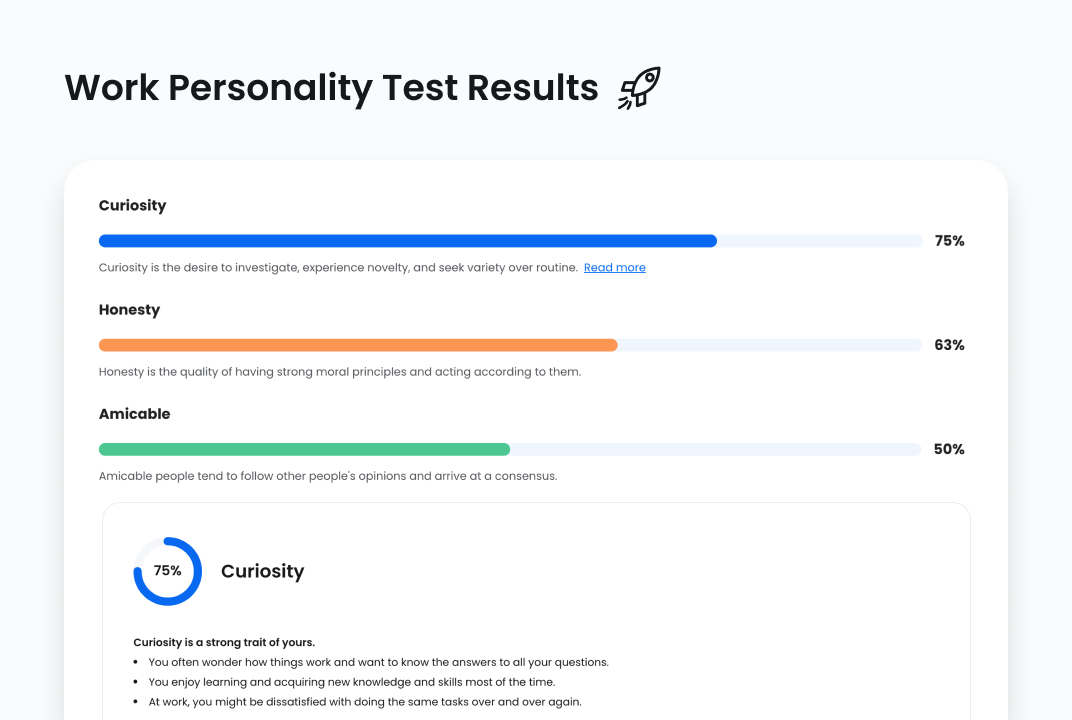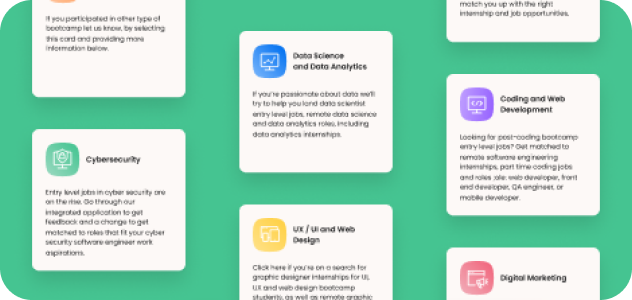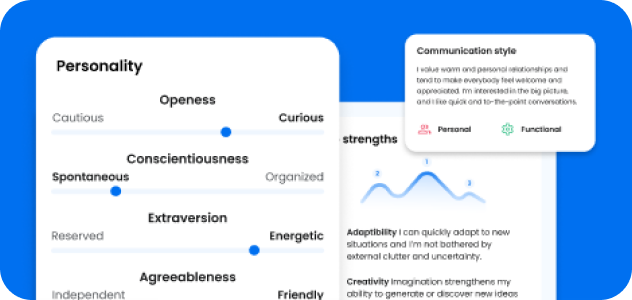Workplace Personality Test

Scientific assessments, with this one inspired by the Big Five model.
Benefits
Gyfted’s free online soft skills self-assessment provides you with insights into how you work in a team and in a work environment. You will better understand your behaviors and personality traits in organizations, for example when it comes to cooperation, problem-solving with your coworkers, interpersonal relations.
Why is this of value to me?
How you can use this test?
How it works?
you’re at ease, undisturbed
and ready to focus.
you through the process. It’s
easy - just go with your gut
feeling.
you will receive your
feedback immediately
anyone, with just a click of a
button
What's Inside? Get immediate feedback by measuring these traits in you
Workplace Personality Test
Assessment Insights
Scientific and Empirical Foundations
Relationship between personality traits and job performance: Barrick, M. R., & Mount, M. K. (1991). The big five personality dimensions and job performance: a meta-analysis. Personnel psychology, 44(1), 1-26. Origins and models of work personality traits: Hogan, R., & Holland, B. (2003). Using theory to evaluate personality and job-performance relations: A socioanalytic perspective. Journal of Applied Psychology, 88(1), 100-112. Application of personality assessments in hiring: Schmitt, N., & Ryan, A. M. (1993). The Big Five in personnel selection: Factor structure in applicant and nonapplicant populations. Journal of Applied Psychology, 78(6), 966-974. Personality and career decisions: Lounsbury, J. W., Gibson, L. W., & Hamrick, F. L. (2004). The development and validation of a personological measure of work drive. Journal of Business and Psychology, 18(4), 427-451. Personality and teamwork: Neuman, G. A., Wagner, S. H., & Christiansen, N. D. (1999). The relationship between work-team personality composition and the job performance of teams. Group & Organization Management, 24(1), 28-45. Impact of personality on leadership: Judge, T. A., Bono, J. E., Ilies, R., & Gerhardt, M. W. (2002). Personality and leadership: A qualitative and quantitative review. Journal of Applied Psychology, 87(4), 765-780.


